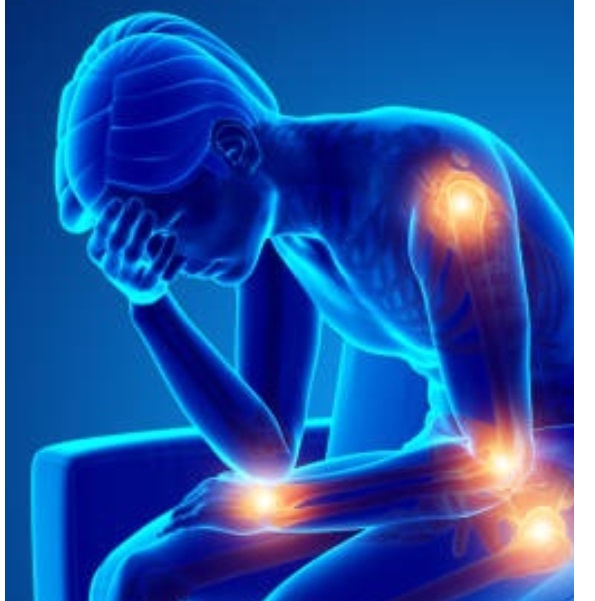Factors Affecting Pain:
Pain can be influenced by a variety of factors, including physical, psychological, and social factors. Some of the major factors that can affect pain include the nature and severity of the injury or condition causing the pain, individual pain tolerance, emotional state, previous experiences with pain, social support, and cultural background.
Smoking and Pain Perception:
Smoking is known to be detrimental to pain perception. Nicotine present in tobacco smoke can cause vasoconstriction, reducing blood flow to the affected area and impairing the healing process. It can also interfere with the release of endorphins, which are natural painkillers produced by the body, leading to increased pain sensitivity.
Physical Effects of Pain:
Pain can have several physical effects on the body, including muscle tension, fatigue, reduced mobility, and disturbed sleep. It can also impair the immune system, making it harder for the body to fight off infections and heal from injuries.
Psychological Pain:
Psychological pain refers to the emotional distress that arises from various life experiences such as loss, rejection, or failure. It can manifest in various forms such as depression, anxiety, and stress. Psychological pain can be as debilitating as physical pain and can significantly impact an individual’s quality of life.
Causes of Emotional Pain in Children:
Children can experience emotional pain due to various reasons such as parental separation or divorce, abuse, neglect, bullying, loss of a loved one, or academic pressure. In addition, children who have experienced trauma or adverse life events may also be more vulnerable to emotional pain.
PTSD:
PTSD (Post-Traumatic Stress Disorder) is a mental health condition that can occur in individuals who have experienced or witnessed a traumatic event such as a natural disaster, serious accident, war, or physical or sexual assault. PTSD can cause a range of symptoms such as flashbacks, nightmares, anxiety, and avoidance behaviors.
Negative Coping Strategies:
Negative coping strategies are behaviors that individuals may use to cope with emotional pain or stress that are ultimately harmful or unhelpful in the long run. These can include substance abuse, self-harm, denial, and avoidance.
Treatment of Emotional Pain:
Various types of therapy such as cognitive-behavioral therapy, psychotherapy, and group therapy can be helpful in treating emotional pain. In addition, meditation, yoga, exercise, and other self-care activities can also be effective in reducing emotional distress.
Suggestions for People Experiencing Emotional Pain:
It is important for people experiencing emotional pain to seek help and support from loved ones or mental health professionals. They can also try various self-care techniques such as journaling, meditation, exercise, and spending time in nature to help manage their symptoms.
Four Stages of Stress:
The four stages of stress are the alarm stage, resistance stage, exhaustion stage, and recovery stage. The alarm stage is the body’s initial response to stress, where it releases adrenaline and cortisol to prepare for the fight or flight response. The resistance stage is where the body attempts to cope with the stressor and maintain a sense of balance. The exhaustion stage occurs when the body’s resources are depleted, and symptoms such as fatigue, irritability, and illness may occur. The recovery stage is when the body begins to recover and return to its normal functioning.
Herbs used to treat emotional pain.
- John’s Wort: This herb is often used to treat depression and anxiety, as it is believed to help balance neurotransmitters in the brain that regulate mood.
- Chamomile: Chamomile is a gentle herb that is often used to promote relaxation and calmness. It may be useful for treating mild anxiety and depression.
- Lavender: Lavender is another herb that is often used to promote relaxation and calmness. It may also help to reduce anxiety and improve sleep.
- Valerian root: Valerian root is a natural sedative that may be helpful for treating anxiety, insomnia, and other symptoms of emotional distress.
- Passionflower: Passionflower is a calming herb that may help to reduce anxiety, promote relaxation, and improve sleep.
It is important to note that while herbs can be helpful for treating emotional pain, they should not be used as a substitute for professional medical treatment. If you are struggling with emotional distress, it is important to seek the guidance of a qualified healthcare professional.
(Nutrition Life Circle)

My Self Hari singh choudhary
S.N.H.S. Dip.(Holistic nutrition), London, S.N.H.S. Dip. (Advanced Nutrition), London, S.N.H.S. Dip. (Holistic Pain Management), London, S.N.H.S. Dip. (Nutrition for Age 50+), London, S.N.H.S. Dip. (Plant-Based Nutrition), London, S.N.H.S. Dip. (Vegetarian & Vegan Nutrition,) London, Certified Diabetes Educator’s (INDO-VIETNAM MEDICAL BOARD, Associate member of The International College of Holistic Medicine, England.
NATURAL DISEASE ERADICATION
[ NUTRITION THERAPY ]
For Business inquiry:-
Email: nutritionlifecircle@gmail.com
WhatsApp Number: +91 9425090558

Very useful information for evey one
Thanks